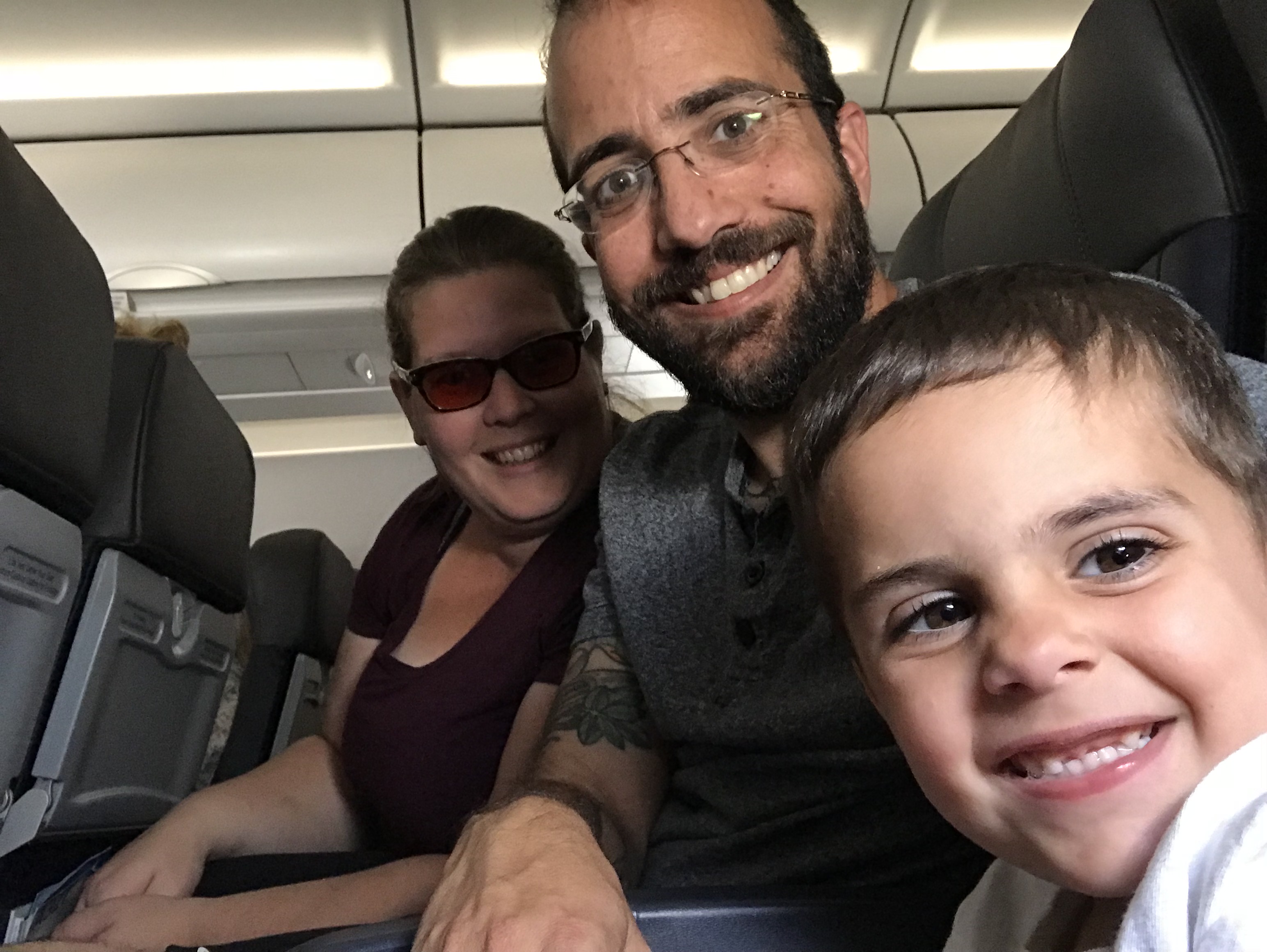- Seth is a transgender man who underwent fertilization treatments in order to conceive a child with his wife.
- Though he got a new job to ensure his fertility treatments would be covered by his insurance, the insurance company refused to pay.
- Seth appeared on an episode of Pregnantish, a new podcast hosted by Andrea Syrtash that features people who have had “unconventional paths to parenthood,” to talk about his experience.
- Visit Insider’s homepage for more stories.
Like many young men looking to start families with their partners, Seth wanted to have biological children with his wife. Because he’s transgender, he planned on undergoing in vitro fertilization – the process of extracting his eggs so they could be fertilized outside the body – with his wife carrying the baby to term.
But IVF is not a cheap procedure, with one round of medications averaging about $20,000. Seth took a job that came with insurance that covered the procedure, but when it came time to foot the bill, he was denied coverage – costing him and his wife about $30,000, a total they are still working to pay off today.
Seth shared his experience of going off testosterone to undergo the fertility treatments, as well as the battle with his insurance company to cover those treatments, on the first episode of Pregnantish, a new podcast hosted by Andrea Srytash. The show features the stories of people who have had “unconventional paths to parenthood.”
 Foto: sourceEmiliaUnger/Shutterstock
Foto: sourceEmiliaUnger/Shutterstock
Seth had to be off testosterone in order to ensure he could undergo the fertility treatments – a waiting period that stretched 9 months long
At 25 years old, Seth, who declined to give his last name for the podcast interview, started taking testosterone as a part of his gender affirmation process. While testosterone is a common part of many people’s journey towards gender affirmation, it can also render a person unable to conceive children.
The benefits of medically transitioning outweighed the cons, but Seth still felt a loss at the idea of not being able to have biological children.
"You just weigh everything and you get to a point where you realize that all of the possible costs are worth it because there's only one way to move forward," Seth said on the podcast. "And that definitely was the case for me. But I grieved deeply that I thought that I was losing my opportunity to be a genetic parent."
Seth said he didn't think he'd ever have a long-term partner or family when he started his transition process, partially because of the complicated nature of trying to start a family after transitioning, but a few years later he fell in love with his now-wife and they decided to do it.
"I always knew, from very young, that I wanted to be a parent," Seth said. "And I had this idea many years ago, just thinking about it, where I was like, 'Well, you know, if I have eggs and I know I'm going to be partnered with someone who has a uterus, my partner could carry my baby.'"

Seth's body began showing symptoms like periods when he went off testosterone
In order for the fertility treatments to fully work, Seth went off testosterone for a period of time. That stretched into a year-long ordeal when his insurance company refused to pay for the treatments.
During that year, Seth's body was affected by not being on testosterone and began to "return to the natural state that [his] body would be in without external medication," showing symptoms like periods again.
"It was absolutely as hard as the year that led up to me transitioning, which was one of the most difficult periods of my life," Seth said. "And it was hard because I was having that experience but it also was hard because of that fight with the insurance, which ultimately we were denied coverage."
 Foto: sourceGetty
Foto: sourceGetty
Many insurance companies don't cover fertility treatments for trans people
Seth took a job in Massachusetts in order to ensure his insurance would cover fertility treatments, because the state has a mandate for infertility coverage in commercial health insurance. Seth had medically transitioned under the supervision of a doctor, which rendered him infertile, and under state law, he believed his plan covered him for fertility preservation.
However, when the pre-authorization statement came back, the insurance company had denied his request for coverage.
Seth and his wife appealed to local department of health, and each time, the family was told these kinds of fertility preservation treatments applied to people with cancer.
After a long battle with their insurance company, Seth and his wife made the decision to go forward with IVF and foot the $30,000 bill themselves. They now have a healthy child.
"I viewed it as an opportunity to maybe have a child with my wife and that opportunity had to be enough. We were really lucky," Seth said.
